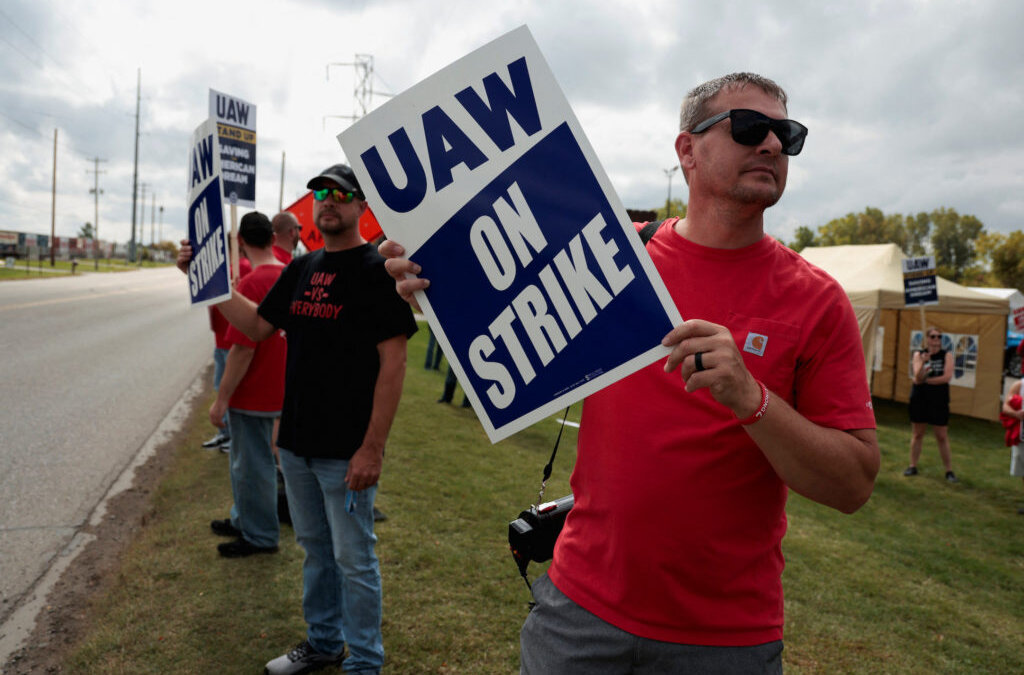Here’s how the UAW strikes are affecting Jaxport’s auto business (Courtesy of the Jacksonville Business Journal) — The United Auto Workers never initiated a simultaneous strike against the Big 3 automakers before this year. With more than half a million automobiles going through Jaxport annually, would that lack of production make a dent in port traffic?
That concern wasn’t helped Friday as the UAW expanded its strike to a Ford plant in Chicago and a General Motors facility in Lansing, Michigan. That added 7,000 workers to the 18,000 already on strike. The strike’s last expansion was to 38 Stellantis and GM parts distributors across 20 states.
Over the past five years, Jaxport has averaged more than 617,400 vehicles. Most won’t be affected.
“The strike impacts select domestically manufactured vehicles,” said Chelsea Kavanagh, Jaxport chief communications officer. “While we export some of these vehicles, they make up a small percentage — about 5% — of our overall automobile volumes because most of our volumes are either imported vehicles manufactured outside of the United States, or exported previously owned, used, cars.
“We continue to work with our terminal operators and auto-handling partners to monitor the situation.”
The strike largely affects assembly of models like the Chevrolet Colorado, the Ford Bronco and the Jeep Wrangler, though availability of parts for GM vehicles and the Jeep-Chrysler-Dodge line are also affected.
The strike’s impact on not only Jaxport but the national auto industry might be limited.
Cox Automotive Chief Economist Jonathan Smoke told NPR that the strike “will only impact a portion of the retail business, and the impact will be slow coming.”
Photo courtesy of PBS

